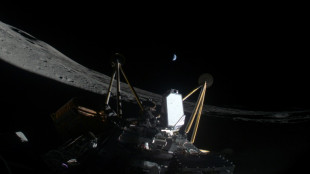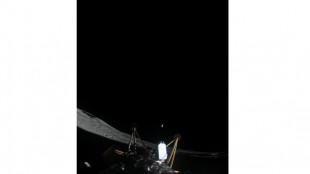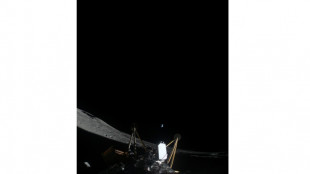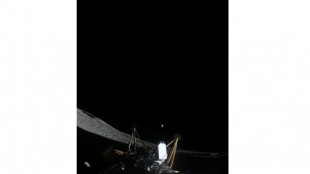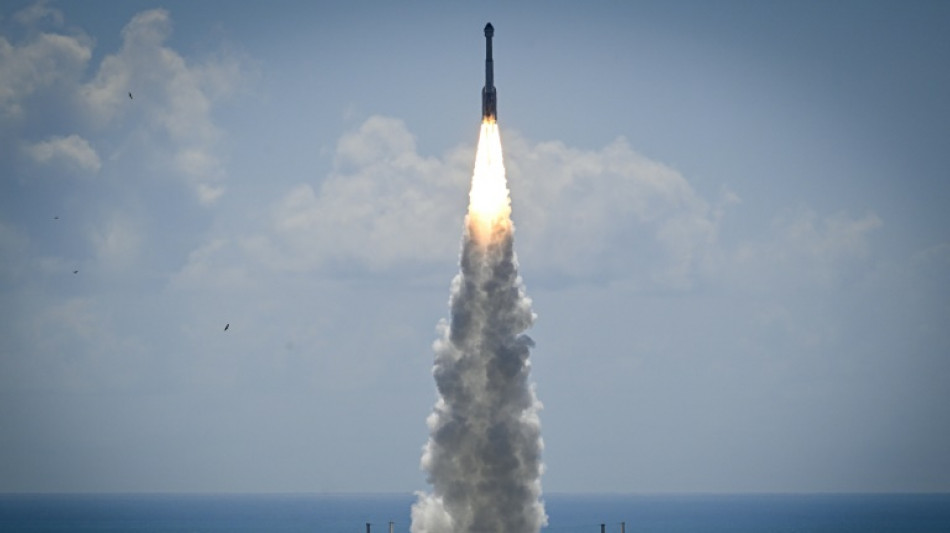
-
 China consumption slump deepens as February prices drop
China consumption slump deepens as February prices drop
-
'Things are different' Djokovic says after another early exit at Indian Wells

-
 Colombian guerillas release hostage security forces
Colombian guerillas release hostage security forces
-
France lose Dupont but Six Nations title on the cards after thrashing Ireland

-
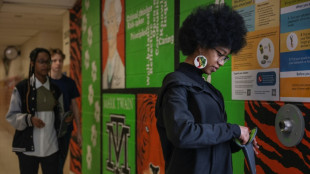 Phone bans sweep US schools despite skepticism
Phone bans sweep US schools despite skepticism
-
Did Ukraine have to become a partisan US issue?

-
 Djokovic crashes out of Indian Wells opener
Djokovic crashes out of Indian Wells opener
-
Britain's King Charles calls for unity in 'uncertain times'

-
 Morikawa seizes lead at Arnold Palmer after birdie rally
Morikawa seizes lead at Arnold Palmer after birdie rally
-
Alcaraz, Keys breeze into Indian Wells third round

-
 Record-setting Skotheim claims European indoor heptathlon title
Record-setting Skotheim claims European indoor heptathlon title
-
Inter survive Monza scare to extend Serie A lead

-
 Argentina port city 'destroyed' by massive rainstorm, 13 dead
Argentina port city 'destroyed' by massive rainstorm, 13 dead
-
Townsend relishing 'toughest fixture' in France after Scotland's Six Nations win over Wales

-
 Colombian guerillas release hostage security forces: AFP
Colombian guerillas release hostage security forces: AFP
-
Some 200 detained after Istanbul Women's Day march: organisers

-
 Draper sends Brazilian sensation Fonseca packing at Indian Wells
Draper sends Brazilian sensation Fonseca packing at Indian Wells
-
Man with Palestinian flag scales London's Big Ben clock tower

-
 Protesters rally on International Women's Day, fearing far right
Protesters rally on International Women's Day, fearing far right
-
Australian Open champion Keys cruises into Indian Wells 3rd round

-
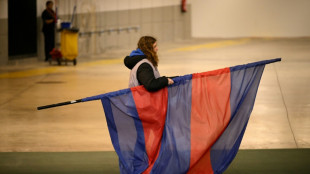 Barca Liga match postponed after club doctor dies
Barca Liga match postponed after club doctor dies
-
Alldritt revels in 'historic' French performance to thrash Irish

-
 Watkins haunts Brentford to revive Aston Villa's top-four hopes
Watkins haunts Brentford to revive Aston Villa's top-four hopes
-
Pulisic double rescues AC Milan at lowly Lecce

-
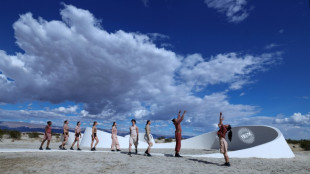 Mirrors, marble and mud: Desert X returns to California
Mirrors, marble and mud: Desert X returns to California
-
'Grieving': US federal workers thrown into uncertain job market

-
 Slot blast fuelled Liverpool's comeback against Southampton
Slot blast fuelled Liverpool's comeback against Southampton
-
Russell back in the groove as Scotland see off Wales in Six Nations

-
 Remains of murdered Indigenous woman found at Canada landfill
Remains of murdered Indigenous woman found at Canada landfill
-
French throng streets for International Women's Day rallies

-
 Security forces taken hostage by Colombian guerillas released: AFP
Security forces taken hostage by Colombian guerillas released: AFP
-
Pope responding well to pneumonia treatment, Vatican says

-
 France coach Galthie 'angry' at Dupont knee injury
France coach Galthie 'angry' at Dupont knee injury
-
The French were clinical, we were not, says Irish coach Easterby

-
 Sleeping man is struck by train in Peru but survives
Sleeping man is struck by train in Peru but survives
-
Dembele hits double as PSG win ahead of Liverpool return

-
 Bosnia top envoy backs court ruling against separatist laws
Bosnia top envoy backs court ruling against separatist laws
-
Bayern get away with shock loss as Leverkusen fall to defeat

-
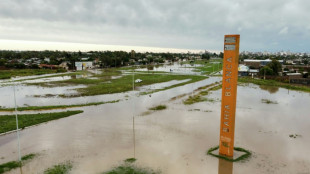 'We have to rebuild a city,' Argentine official says after storm kills 10
'We have to rebuild a city,' Argentine official says after storm kills 10
-
Guardiola urges troubled Man City to fight for Champions League place

-
 Salah fires Liverpool 16 points clear, Forest beat Man City
Salah fires Liverpool 16 points clear, Forest beat Man City
-
Liverpool fight back to go 16 points clear as title moves closer

-
 Hermes celebrates felt at Paris Fashion Week
Hermes celebrates felt at Paris Fashion Week
-
Bayern unpunished for shock loss as Leverkusen fall to defeat

-
 Majestic France destroy Irish Six Nations Grand Slam dreams
Majestic France destroy Irish Six Nations Grand Slam dreams
-
Santner wants New Zealand to keep 'open mind' for Champions Trophy final

-
 Pogacar remounts after fall and charges to Strade Bianche win
Pogacar remounts after fall and charges to Strade Bianche win
-
Negri wants Italy to 'make things right' against England in Six Nations

-
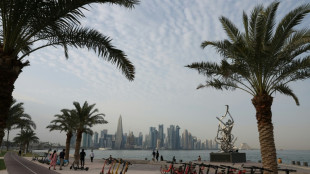 Attack on Iran nuclear plant would leave Gulf without water, Qatar PM warns
Attack on Iran nuclear plant would leave Gulf without water, Qatar PM warns
-
Mitchell backs Dingwall to be England rugby's answer to Rodri


Boeing's Starliner: a saga marked by setbacks
The decision to transfer the crew of Boeing's Starliner to a SpaceX mission after the spacecraft malfunctioned is just the latest twist in a long saga that has undermined the credibility of the US aerospace giant.
Here is a recap of the setbacks and delays on Starliner's journey to fly a crew to the International Space Station -- and how it was unable to bring them back again.
- 2014: Nasa awards contract -
A decade ago NASA chose two companies, Boeing and SpaceX, to each develop a new spacecraft capable of transporting its astronauts to the International Space Station (ISS).
The US space agency asked both to be ready for 2017, as it sought to end its dependence on the Russian spacecraft it had used to ferry astronauts to the ISS since the end of the space shuttle program in 2011.
Boeing was awarded a $4.2 billion contract, against SpaceX's $2.6 billion. At the time, billionaire Elon Musk's young company was widely seen as the underdog against Boeing's aerospace might.
- 2019: Failed unmanned flight -
During a first unmanned flight in December 2019, the capsule failed to set itself on the right trajectory and returned to Earth prematurely after two days, without reaching the ISS.
The problem was due to a clock that was eleven hours late, preventing the capsule from firing its thrusters at the scheduled time.
NASA then realized that another software problem could have led to a catastrophic collision.
The manufacturer was given a long list of recommendations and modifications to make.
- 2021: False hope -
In August 2021, when the rocket was already on the launch pad for another attempt at flight, unexpected moisture caused a chemical reaction that blocked the opening of some of the capsule's valves.
The capsule returned to the factory for inspection over a period of several months.
The delay was in stark contrast to the progress being made by SpaceX, which had been successfully transporting astronauts to the ISS since 2020.
- 2022: First (unmanned) success -
In May 2022, Starliner finally completed its first unmanned test flight.
Despite a few glitches -- including a propulsion system problem detected in flight, but with no adverse consequences -- the capsule lifted off, reached the ISS where it remained docked for several days, and returned safely to Earth.
- 2023: New worries, new delays -
Starliner's nascent momentum was arrested in 2023 when new problems emerged, delaying preparations for its first manned flight.
One concerned the design of the parachutes that would slow the capsule as it re-entered the atmosphere. It was modified and new tests carried out.
The other was even more surprising: adhesive tape, used over several meters to wrap electrical cables inside the capsule, proved to be flammable and had to be removed.
- 2024: First manned flight goes awry -
The big day finally arrived on June 5, 2024: the capsule lifted off with two astronauts for the first time, a final test mission to prove it was safe before beginning regular operations to the ISS.
But leaks of helium, the gas used to create pressure in the propulsion system, were discovered in flight.
Several thrusters then failed before the capsule docked with the ISS, although all but one were eventually reignited.
NASA feared the capsule would not be able to achieve the thrust necessary to return to Earth.
As a result, the space agency took a radical decision: to transfer the two astronauts to a SpaceX mission, and return Starliner empty.
Analysis of the flight will determine the path forward -- and how long any new delays will last.
Boeing has already gone $1.6 billion over budget on the program.
M.A.Colin--AMWN
